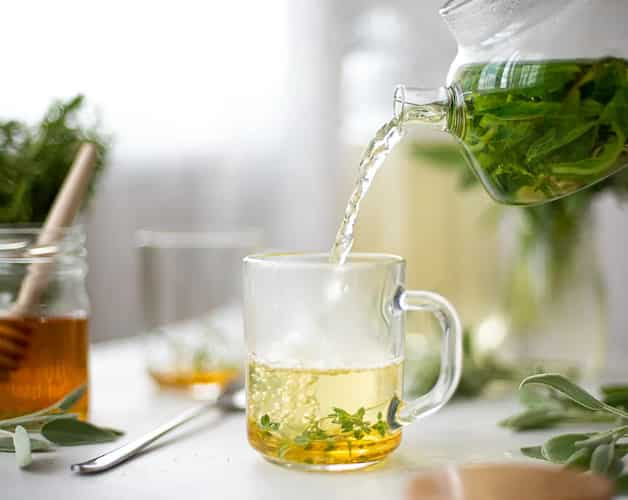Tea and mornings go hand in hand. The 'elixir of life' is the most palatable beverage worldwide after water since the majority of people start their days with a cup of tea. The variety of teas available now ranges from green tea, yellow tea, to a number of herbal teas. It is offered in a wide range of flavours in addition to variations with numerous uses. Popular green tea assists in reducing body fat if black tea reduces the desire to snack. Herbal tea reduces fever and fights infections and a weak immune system. Tea has a wide range of health benefits when used in moderation, including increased energy, cardiovascular protection, lowered cholesterol, and assistance with weight loss. But drinking too much tea can impair your ability to absorb nutrients, amplify your anxiety, impair your ability to sleep, and give you heartburn. Knowing when to have tea is also vital, as is making sure that you don't take it with your big meals. On an empty stomach, one should also stay away from strong tea.
Tea offers nutrients to the diet that are healthy while also warming your body. However, few tea drinkers are aware that caffeine is included in tea as well. The amount of caffeine in tea varies depending on how the plant is grown and processed. The most caffeinated teas are black and matcha, while green tea includes a moderate amount. Contrary to other teas, oolong tea has less caffeine.
Because tea includes caffeine, which can boost our energy and aid in digestion, most individuals have decreased energy levels after meals and in the morning. It makes sense to drink tea immediately following a meal during the day based on that. Tannic acid, which is present in tea, reacts with the iron and protein in diet. As a result, it stops these ingredients from being absorbed. As a result, it is advised to do so fifteen to twenty minutes after eating. But since many of your favourite teas do contain caffeine, it's generally not a good idea to consume tea after supper.

Tea has a combination of tannins and slightly hinders digestion, but not enough to prevent you from drinking it for breakfast. Every time we talk about improving iron absorption, we always include adding vitamin C. In order to increase nutritional absorption, you can eat foods together. Tea includes tannins that don't produce much acidity. If someone has severe acid reflux, they might want to attempt to avoid drinking a strong cup of tea first thing in the morning on an empty stomach. In that instance, a little extra milk might be added to make it a little weaker.
However, if you discover that you yearn for a hot cup of tea after dinner, consider switching to a herbal blend. After a hard day at work, herbal teas like chamomile can help you relax and perhaps aid to encourage a better night's sleep.
Tips
Be careful not to overboil the tea. Steeping at a low temperature keeps the health benefits of tea intact.
Limit the amount of milk and sugar you use. Without the addition of milk and sugar, tea retains its true flavour. Even if you wish to add milk, do it last and only after it has boiled. Then turn off the burner. Keep the brewing brief.
Avoid using tea bags. Instead, use loose tea leaves.
If you want to drink tea at night, it is recommended to do so around 8:30 PM because this is when our digestion is at its optimum and we may take a little additional caffeine to speed up our metabolism.
Tea consumption around 3 p.m. is very healthy for people since it boosts their immune systems and helps them avoid colds and flu.


